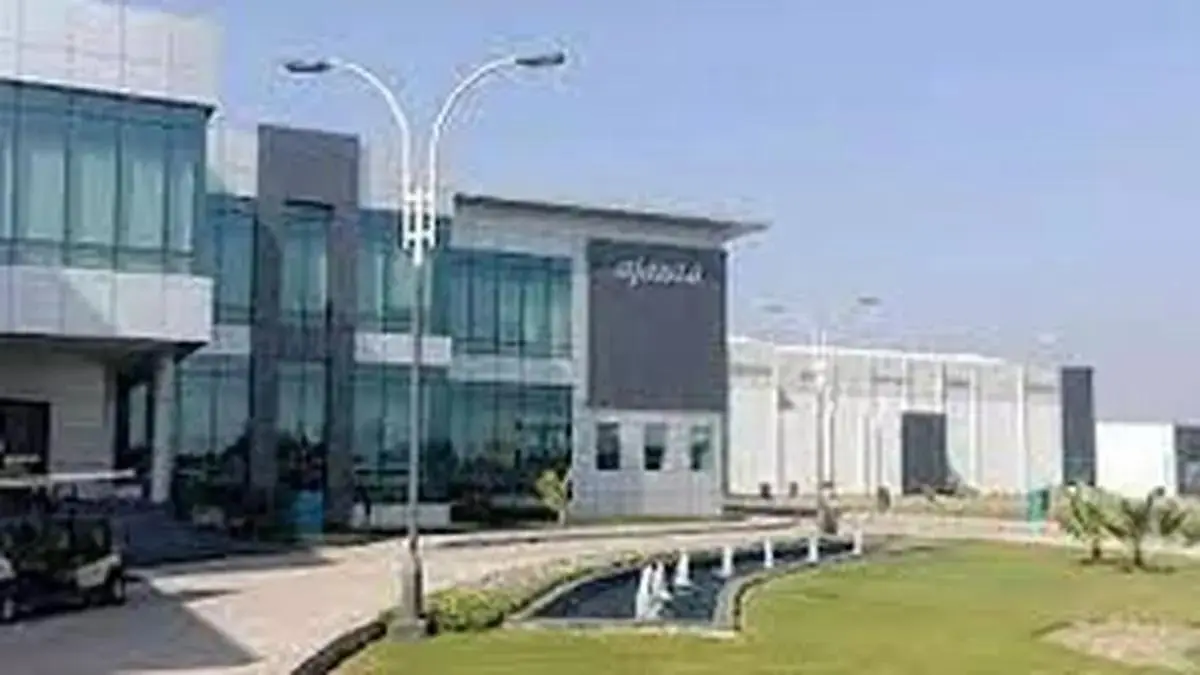
“We thought why not have people lying in caskets being interviewed?” Ginsberg said. “It’s certainly different. It certainly gets people’s attention.”
Aside from what’s happening in their careers, guests of the Titan-sponsored show are asked about their thoughts on death, including how they want to be remembered in a “You-ology.” Each episode gets tens of thousands of views; the one with Gunn, timed for the release of his “Superman” movie, racked up 116,000 so far.
Ginsberg said season three went so well, the producers are making plans for a fourth. Titan remains a small company — even after a cameo in a Taylor Swift video in 2022 — with 21 employees globally and a corporate office in Methuen. Still, Titan bills itself as the country’s largest direct-to-consumer casket company, with a logistics network that can ship to any funeral home within two days.
The marketing often takes quirky turns — like that time Ginsberg dressed up as a stuffed casket called Mort (the company mascot) in a mascot race at a Worcester Red Sox game in August.
“Our goal is to normalize conversations around death and dying,” Ginsberg said. “We’re having fun. And we’re just getting started.”
Could Wayfair chief executive Niraj Shah be in line for $1 billion payout over the next decade?
Sure looks that way — if Wayfair stock can hit some pretty high milestones.
Shares in the home furnishings seller have nearly doubled so far this year, rising around 90 percent into the $85-dollar range as Shah’s leadership team brings the Boston ecommerce company back to profitability. But the stock is still a far cry from the $300-plus range in which it traded in 2020 and 2021. Investors saw Wayfair as a smart pandemic-era bet when everyone was stuck at home, ordering items on their phones or computers.
The board this month approved a payout plan for Shah that would deliver tranches of restricted stock if Wayfair shares rise to certain levels. For example, Shah would get 1 million shares if the price exceeds $176 within the next six years.
Shah would collect the ultimate prize of up to 5 million shares if the stock rises to $679 within 10 years. The value of the potential payout is impossible to know today, though it could easily clear $1 billion.
Shah and Steve Conine, co-founders and co-chairs of the board, already rely heavily on the stock’s performance for their compensation.
Conine addressed Shah’s massive potential payout in a Sept. 19 email to staff, as well as why he isn’t receiving something similar. Conine stepped back from the chief technology officer role in 2015, and has generally tried to make way for a new generation of company leaders, making him far less involved in the day-to-day operations.
He also noted that the award indicates the board wants Shah to stick around for the next decade. (The two college friends are both in their 50s.) The reward for Shah, he said, won’t affect employee compensation, and is intended to emphasize long-term accountability over short-term rewards.
Eastern Bank chair Bob Rivers did not hold back about his concerns for Boston’s post-pandemic future during a panel discussion organized by State House News Service last week.
His message: It’s not the time to celebrate recent gains, such as the increase in downtown foot traffic and the stabilization of office vacancy rates. Instead, it’s time to worry about what the still-high office tower vacancies will mean for the city’s finances and the downtown’s vibrancy.
“Folks, we’ve got to stop whistling through the graveyard,” Rivers said. “The trends are moving in the right direction, but they’re moving very slowly.”
Rivers said one of the most important solutions is building more housing. The Healey and Wu administrations have provided subsidies to help with office-residential conversions and other housing construction, but they aren’t big enough.
Rivers said many of Eastern’s multifamily developer clients can’t make the numbers work. Some permitting barriers, including Boston’s affordable housing requirement, may need to be loosened, he said.
And most office towers aren’t suitable for conversion. Rivers argued for tearing down obsolete office buildings and replacing them with new multifamily housing.
“Make no mistake,” Rivers said. “We are approaching a crisis here. And we’ve got to think about it that way.”
When Matt DeMichele-Rigoni opened Boston’s first Chick-fil-A shop in early 2022, his business became a magnet for hungry fans of chicken sandwiches and waffle fries, as well as the delivery drivers who serve them.
Now, there will be a break in all that traffic along Boylston Street: DeMichele-Rigoni closed down the shop for two months for renovations. But he’s still taking orders: He opened a backup location to support deliveries at a CloudKitchens commissary in Roxbury, where he employs around 30 people.
DeMichele-Rigoni has worked with Georgia-based Chick-fil-A for his entire career. He started as a teen at a Chick-fil-A in New Hampshire, and after graduating college at Southern New Hampshire University, he entered the chain’s leadership development program. Then, he became a franchisee.
DeMichele-Rigoni said the renovations and the new Roxbury location are aimed at better handling his shop’s popularity and responding to concerns about scooter traffic and double-parking. After the shop reopens, many deliveries will be handled out of Roxbury; the renovations to the Back Bay location will include a new door for delivery drivers and a retractable canopy for the streetside patio. (A separate operator is opening a Chick-fil-A at Logan Airport later this year.)
DeMichele-Rigoni hopes he has hit on the right recipe to reduce traffic complaints — and speed up delivery orders at the same time.
It’s been more than a year since ad mogul-turned-philanthropist Jack Connors died, but the flow of accolades hasn’t abated.
The latest came last Thursday at an event held by the Irish Cultural Centre of Greater Boston at the Venezia restaurant in Dorchester, where the ICC gave out its third annual Brian J. Donnelly Award for Leadership in Public Service. This year, the ICC granted the Donnelly award posthumously, to Connors.
Formerly head of ad agency Hill Holliday and chair of Partners HealthCare, the predecessor of Mass General Brigham, Connors devoted much of his life in recent years to Camp Harbor View, a summer camp for Boston kids that he founded. He died from cancer in July 2024.
ICC board chair Martina Curtin talked about Connors’s devotion to Boston’s civic and philanthropic life, and recalled how proud he was of his Irish roots. New England Council president Jim Brett, a previous Donnelly award winner, gave remarks praising Connors and Brian Donnelly, the former Massachusetts congressman.
PR honcho George Regan recalled how he needed to audition for Connors before he could be hired onto then-mayor Kevin White’s press staff. Then, when Regan thought about striking out on his own, Connors tried to recruit him to Hill Holliday, he said, but eventually offered to invest $25,000 in Regan’s then-new PR firm, launched in 1984.
For 18 months, Regan said, the two would meet weekly over breakfast of Diet Cokes and English muffins, to go over the “nuts and bolts of business leadership.” While Connors joked about how he would never see his money again, he also wanted to protect that investment.
“I’m not ashamed to say,” Regan told the crowd, “that he saved me more than once from my own demise.”



